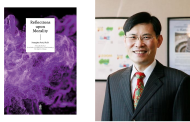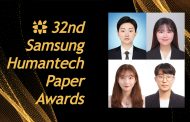A summer exchange program, operated by UNIST and and Harvard John A. Paulson School of Engineering and Applied Sciences (SEAS), ended with great success. The program, which consisted of four weeks of intensive hands-on education, created new opportunities for students to broaden their perspectives, gain new experiences and develop their skills.
A cermeony, marking the successful completion of this collaborative program, was also held at UNIST on Friday, July 19, 2019. The ceremony has been attended by nine students from UNIST and Harvard SEAS, including their academic advisors and supporting staffs. On the same day, five students also completed the collaborative component of the Harvard program in the United States.
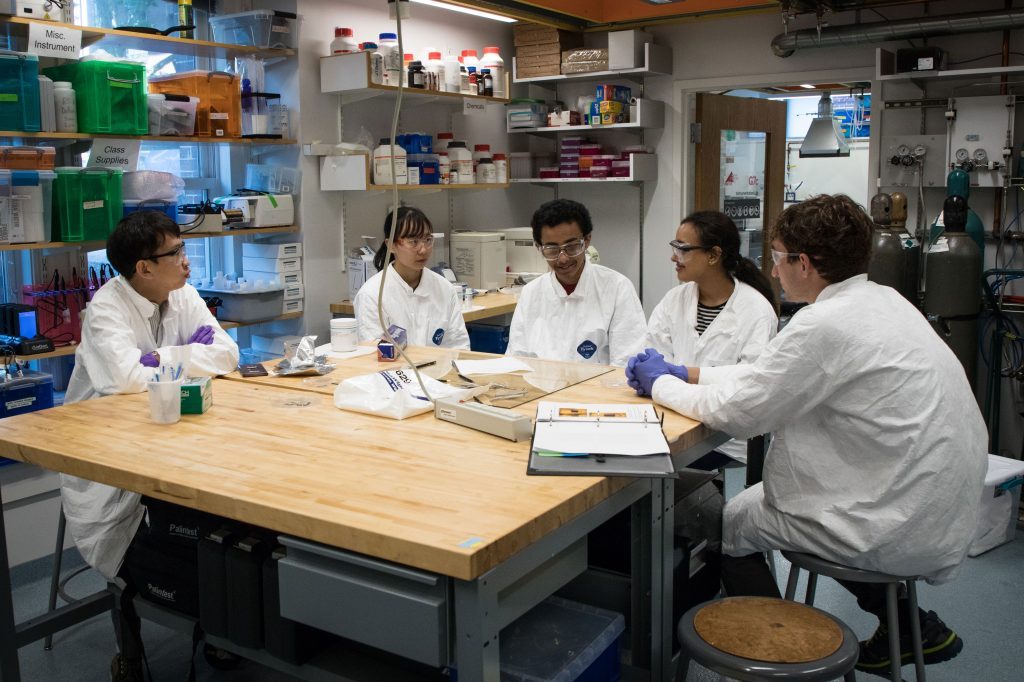
During the collaborative Harvard program, students partook in an experimental study to produce solar cells.
The UNIST and Harvard SEAS Summer Exchange Program is an international summer research program, jointly hosted by UNIST and Harvard SEAS since the summer of 2017. This joint exchange program offers students with an unrivalled opportunity to immerse themselves in a new culture, while broadening their basic science and engineering knowledge. UNIST is the only university in South Korea that runs a cross-cultural research program, jointly with Harvard SEAS.
This year, the program has brought together a total of 14 undergraduate students-10 from UNIST and 4 from Harvard SEAS-for a thorough study on ‘Renewable Energy Harvesting & Storage Systems’ and ‘Biology · Water’. Students, participating in the Renewable Energy Harvesting and Storage Program, spent two weeks at Harvard SEAS to learn about basic semiconductor physics and crystalline silicon solar cells. Upon successful completion of the collaborative Harvard program, students traveled to UNIST for a thorough study on the processes of battery fabrication, specifically studying Lithium-ion and seawater batteries as a means to store the energy created by their solar cells. By the end of the program, students were able to design, build, and test their own cells and turn concepts into physical creations.
“One of the unique aspects of this program is the opportunity for students to interact with those from other universities,” says Professor Kwanyong Seo, who is in charge of the collaborative energy program at UNIST. “This will provide students with an in-depth academic training in the science and engineering fields.”
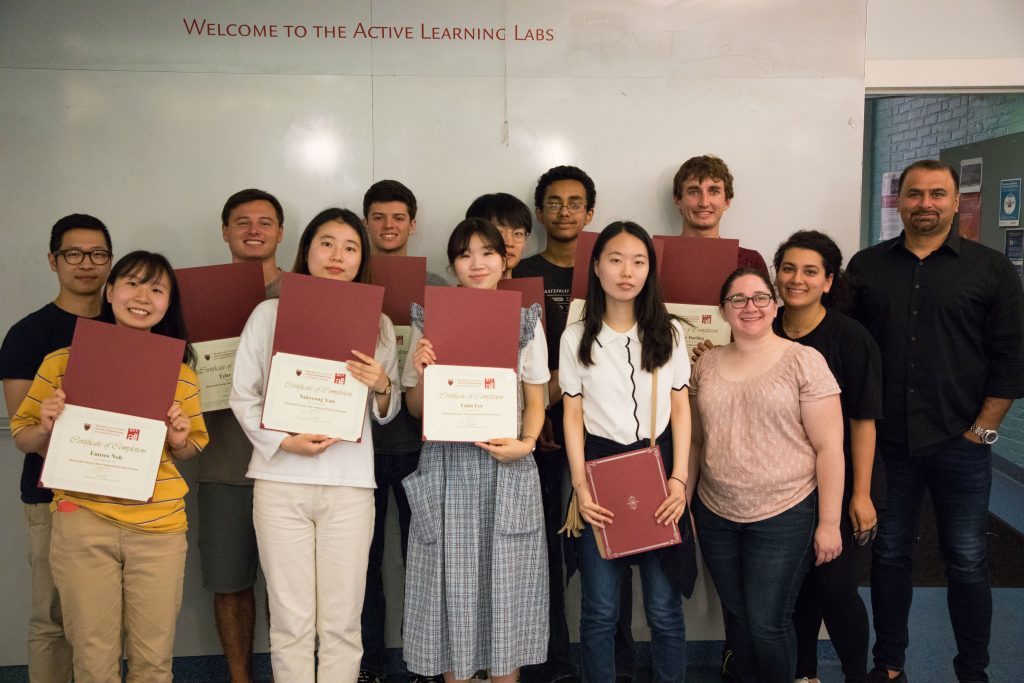
Students from UNIST and Harvard collaborated to design and fabricate solar cells.
Under the guidance of Dr. Anas Chalah (Harvard SEAS) and Professor Tae-Eun Park (UNIST), the Biology · Water program consisted of cell decomposition and extraction, DNA analysis, water quality analysis, and refinement equipment training. Students who participated in this program completed pre-training in Korea and completing the secondary portion at Harvard SEAS from July 8 to 19, 2019.
“I would like to express my sincere gratitude to UNIST-Harvard SEAS Summer Exchange Program for providing me with this opportunity to experience different styles of education,” says NaKyeong Yun in the School of Energy and Chemical Engineering at UNIST. “Having this experience at Harvard was very enlightening, as I get to discuss and explore various concepts in depth.”
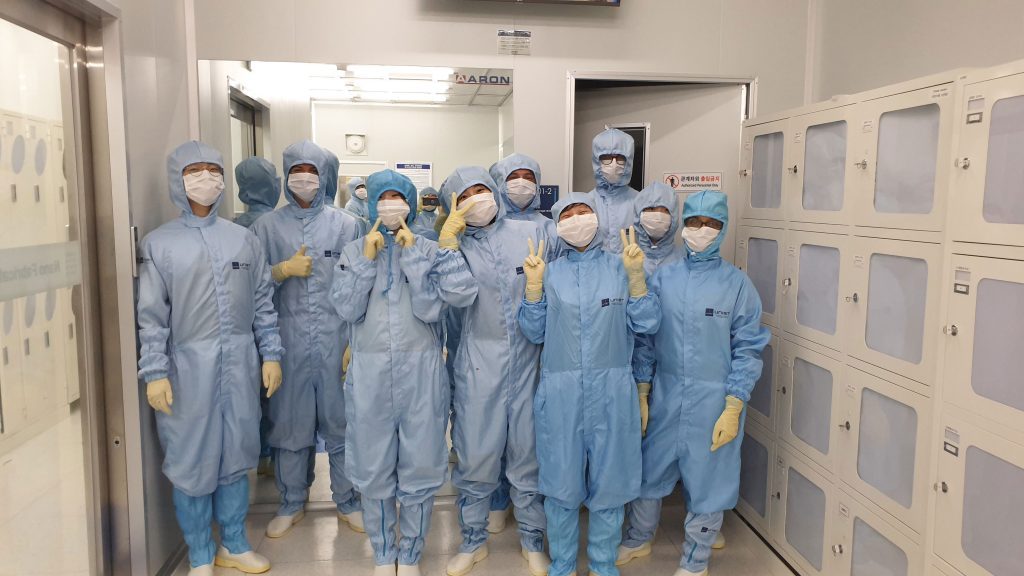
Students had opportunity to experience nano-processing technology in the clean room at UNIST.
The UNIST-Harvard SEAS Summer Exchange Program, operated by UNIST Center for International Affairs, recruits participants among 2nd year students who are interested in studying abroad. The selected students will receive a scholarship through Kyungdong Scholarship Foundation and obtain academic credit for their internship.


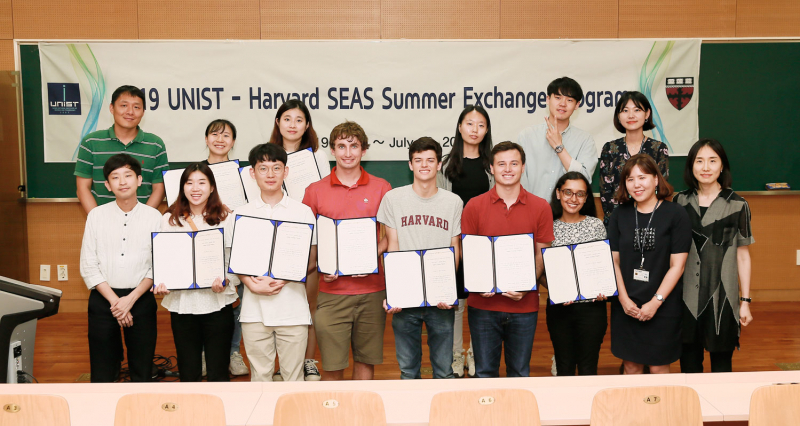




![[2026 UNIST Commencement] “Become Way Makers Who Open Paths Where None Are Drawn!”](https://news.unist.ac.kr/wp-content/uploads/2026/02/사진-박종래-총장이-UNIST-학위수여식사를-전하고-있다-3-1-190x122.jpg)
![[2026 UNIST Commencement] Voices of Class of 2026](https://news.unist.ac.kr/wp-content/uploads/2026/02/Untitled1-190x122.jpg)
